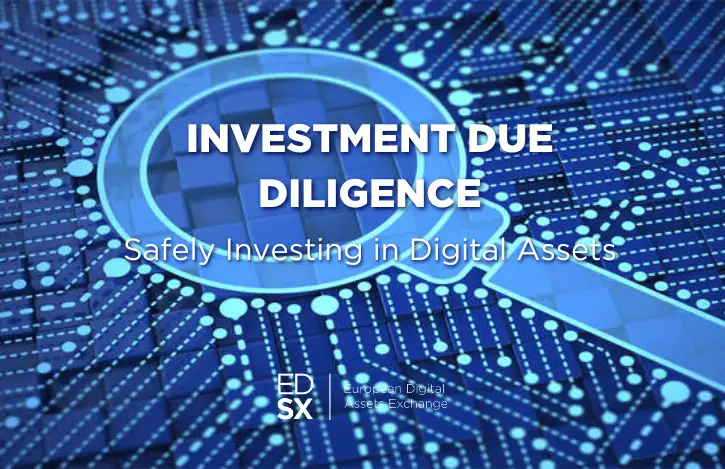As the cryptocurrency markets continue to evolve, the importance of investment due diligence is gaining prominence. Companies and investors engaged in the digital assets space are recognizing the necessity of thorough examination before making strategic decisions. This shift in mindset is underscored by notable failures such as FTX, highlighting the potential consequences when rapid growth outpaces effective risk controls. With major financial entities increasingly entering the crypto arena, the adoption of rigorous risk assessment practices becomes imperative. Establishing and adhering to robust standards in investment due diligence is pivotal for fostering long-term trust and stability in this dynamic landscape.
Total crypto market capitalization has retracted over 75% since its November 2021 peak, yet recent analysis by CoinGecko indicates it remains above year-ago levels, demonstrating enduring interest from market participants. As conditions evolve, investors must thoughtfully evaluate new opportunities with an eye toward past lessons. Rigorous due diligence provides the framework to safely identify promising prospects while avoiding unseen traps.
Key Considerations in Due Diligence
Thorough due diligence requires closely examining many important factors. A conscientious review should scrutinize various elements that are fundamental to evaluating opportunities together with risks in the cryptocurrency sector. It is imperative to carefully assess several significant aspects that merit intense inspection. A wide range of considerations need to be brought under close inspection to properly gauge the legitimacy and soundness of projects, businesses, and investments. Among these important factors are:
- Governance, Operations and Compliance: Strong governance involves addressing board effectiveness, roles, and accountability. Operational resilience covers business continuity, third party oversight, and segregated duties. Compliance programs must implement robust KYC/AML tools and consider data protection and ethics standards. It’s important to understand applicable blockchain governance models as well.
- Asset Management and Operations: Prioritizing secure digital asset custody through multi-signature wallets and ongoing monitoring is key. Life cycle controls and grasp of technical functions like stablecoins aid operational stability. Traditional audits alone may not fully address novel risks without reviewing transaction data and reserves.
- Market and Risk Analysis: Advisors should evaluate platform white papers, development teams, consensus protocols and capabilities. Real-world metrics on adoption, trading activity, volatility as well as returns provide market context. Assessing liquidity risk and variability is important given their influence on values.
- Risk Management Frameworks: Comprehensive strategies for liquidity, funding, stress testing and counterparty exposures help navigate volatility. Internal audit signals risk awareness and mitigation. Portfolio construction uses models to determine appropriate allocation based on client risk tolerance.
- Regulatory Environment: Jurisdictional regulations surrounding classification, taxation, reporting, investor protection and other requirements must be researched and monitored for changes over time.
Due Diligence in Corporations
On the corporate governance front, transparent management structures, defined risk oversight protocols, and rapid remediation of past issues instill confidence. Meanwhile, securing digital assets, thorough KYC/AML compliance, as well as comprehending complex technical operations diminish compliance risks.
Additionally, firms should demonstrate prudent approaches to credit underwriting, market risk hedging through stress testing major drawdowns, and oversight of third-party relationships. For investors, understanding business revenue sources, debt obligations, and liquidity buffers against volatility help assess financial resilience.
As institutions increasingly evaluate crypto through the lens of traditional financial risk analysis, compliance with high standards sends positive signals. Governance policies, segregation of customer assets, as well as liquidity management protocols should reflect maturity. On-chain analytics granting visibility into internal transactions also promote integrity.
Looking Ahead
Overall, the continued prioritization of investment due diligence best practices bodes well for sustainable participation and integration of digital finance. Industry self-regulation to ensure investor protection as well as remedy shortfalls will prove pivotal for encouraging wider mainstream adoption over time. As always, responsible analysis focused on long-term fundamentals rather than hype will guide successful outcomes.

Based in Zug, the platform is fully compliant with all Swiss laws related to financial intermediaries, banking, anti-money laundering, and organized trading facilities. Among its core values, there are innovative solutions through blockchain technology, which ensures security and liquidity.
EDSX is the first platform in Europe with primary and secondary markets for both institutional and retails. EDSX is a pioneering platform that employs the world’s leading technology to globally list security tokens in both primary and secondary markets, listing digital securities of real financial instruments to the public with a decentralized peer-to-peer exchange. Our goal is to fully engage every aspect of the financial revolution.
Do you have a question for us?
Send your query here:
[email protected]

